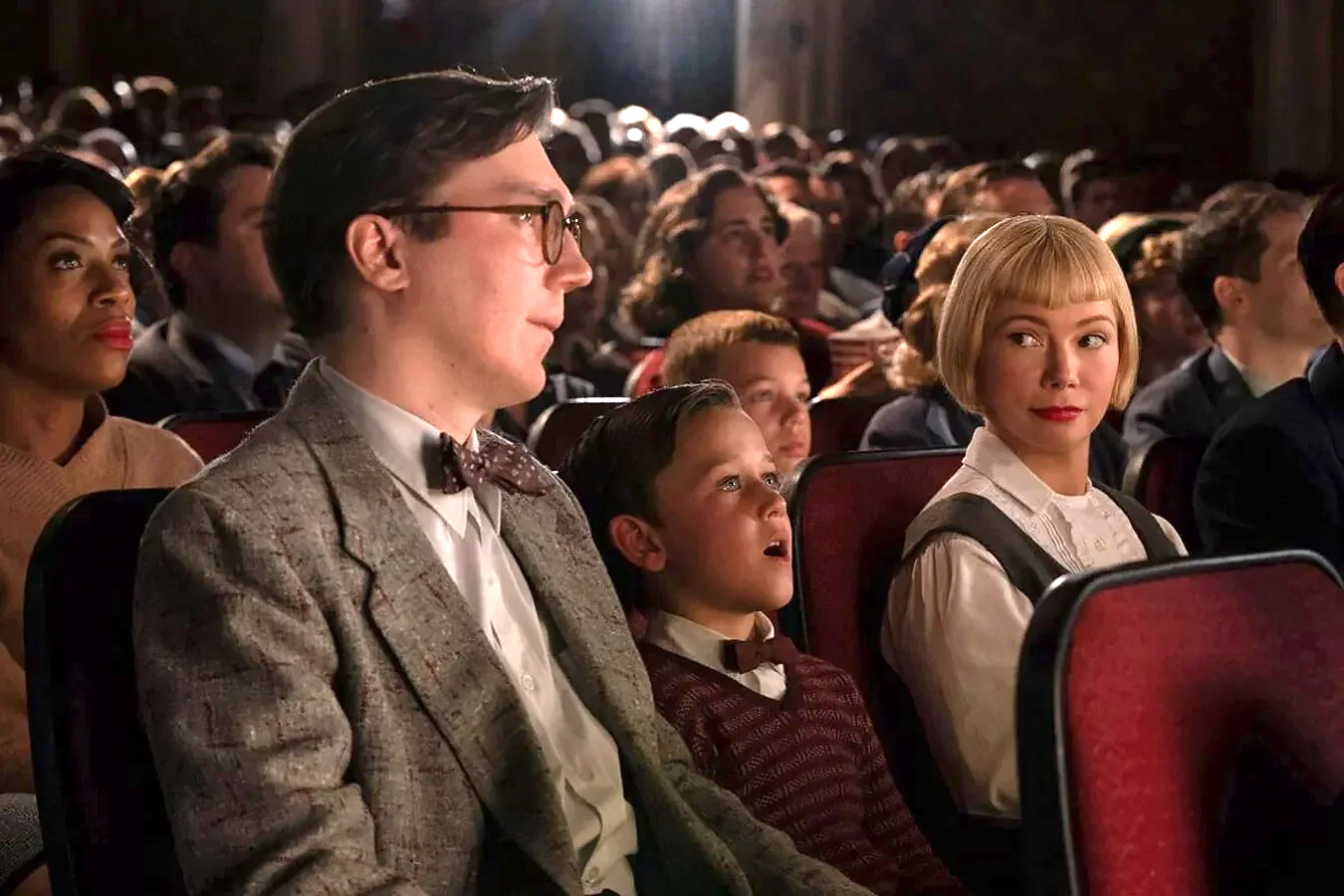
By far, the anticipation of Steven Spielberg’s film “The Fabelmans” to premiere at this year’s Toronto International Film Festival was sky high! Having secured a ticket early in hopes of seeing the film was a plus. Autobiographical in content, Spielberg spoke to the audience after my screening. He said this was his most personal film to date and hoped we all enjoyed seeing his family antics and that they might be similar to ours. Clearly, this film spoke to me as my family moved several times to different states as they did in Spielberg’s movie—although viewers will find it interesting how a young Spielberg began his career as one of the world’s greatest filmmakers.
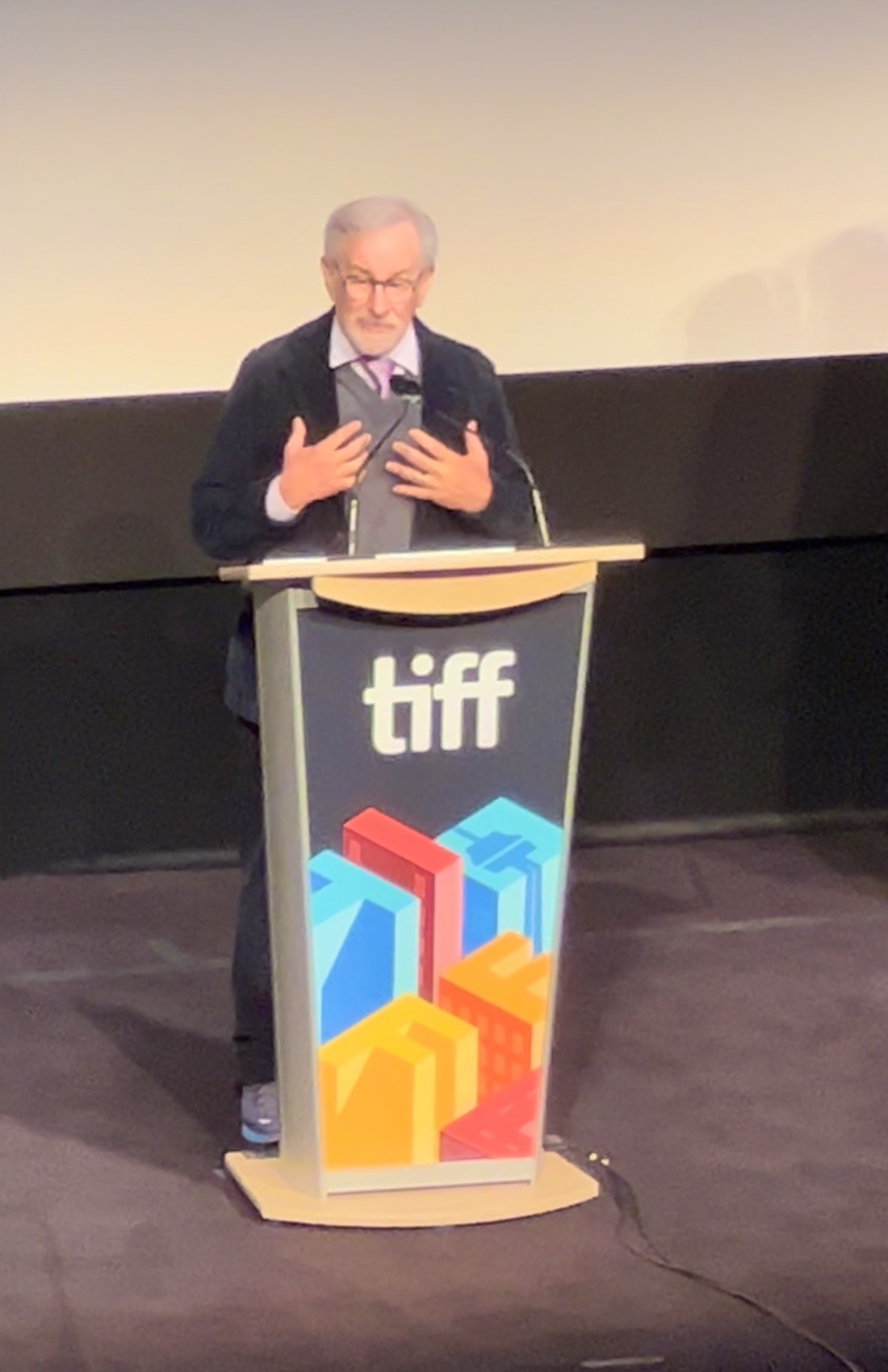
The film begins with a family outing to view the 1952 movie, “The Greatest Show On Earth,” with little Sammy Fabelman (Mateo Francis-DeFord) and a look of astonishment after he sees a train crash in the film. He is determined to recreate that crash and more in his basement. We fast-forward to an older Sammy (Gabriel LaBelle) who creates realistic 8mm war scenes with his friends. Receiving enthusiastic applause at his Boy Scout meetings, he’s encouraged to continue making his films.
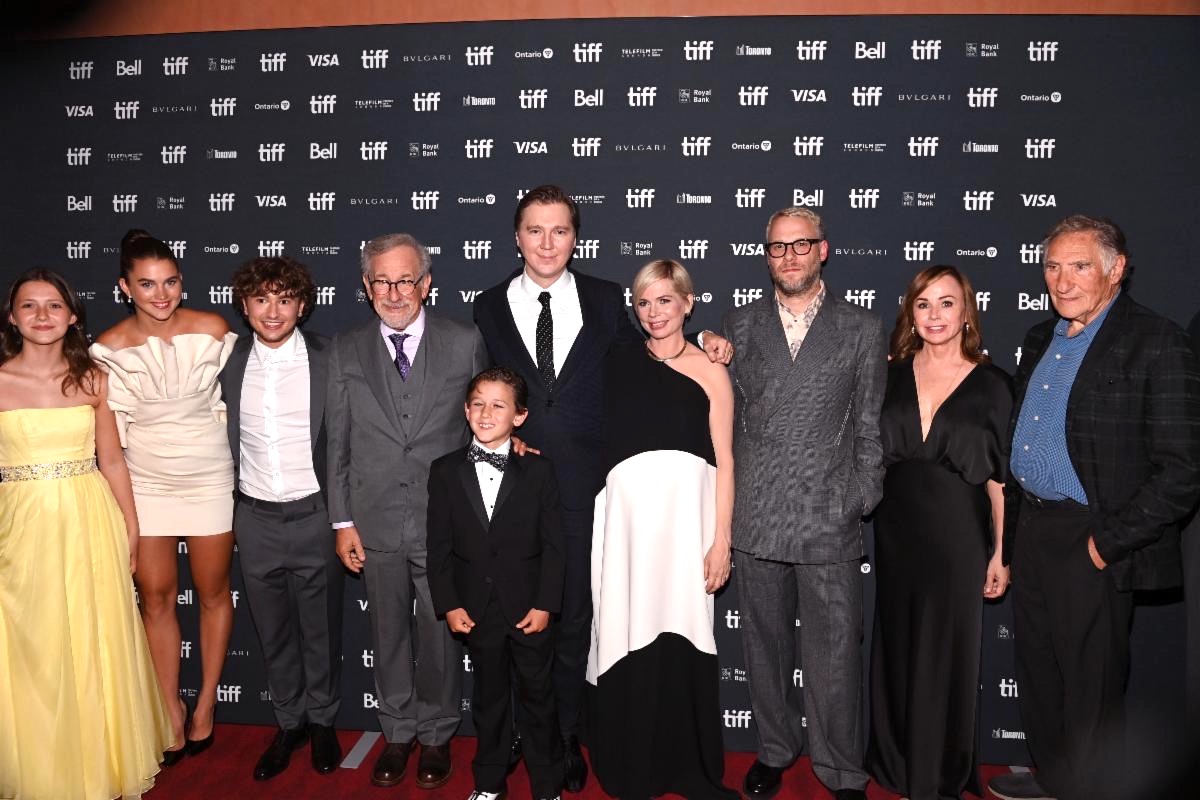
Parents, Paul Dano as his father and mother, Michelle Williams, unfortunately, aren’t in sink on issues of art, fun, and culture. Dad is kind yet somewhat dull in his views sticking to his scientific knowledge as an engineer. Mom, a free-spirited pianist, and dancer, has trouble relating to her husband; she’s stifled, although she comes alive when their wisecracking friend Benny (Seth Rogen) is around—whom the kids all call him Uncle Benny. We view family dinners with Uncle Benny as well as camping trips.
Later in the film, the Fabelmans move to a new school where teens bully Steven for being Jewish. The High School scenes are sensitive yet telling in shaping Spielberg’s film career decisions; other family matters will remain a secret until you’ve seen the film—ending in Los Angeles. “The Fabelman” is one of the best films I’ve seen this year, as all performances are fantastic. Look for an update closer to the release date of November 23.
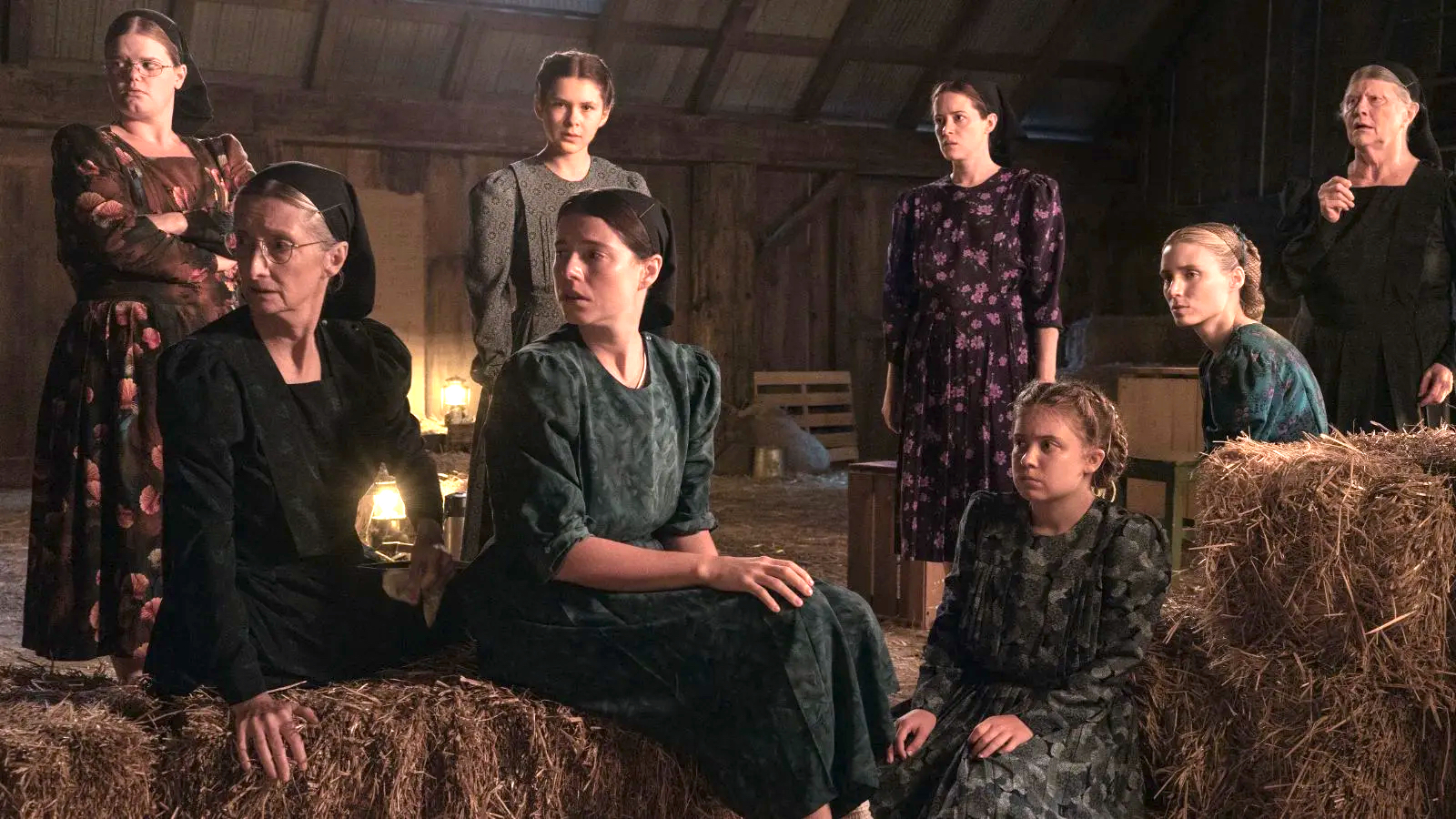
“Women Talking” (R)
The isolated community of Mennonites, a religious group controlled by men, sheds light on Miriam Toews’s book of the same name in Sarah Polley’s harrowing film. Serving as writer and director, Polley educates us on the excruciating lives of women and their female children living in the faction. The opening scene is of women gathered in the upper portion of a large barn participating in a discussion of the men’s violent behavior towards them.
While the village men have left to pay offenders’ bail, the women secretly relate their experiences of waking up covered in bruises and blood with no memory of what happened to them as they slept. It surfaces that men have been systematically drugging and raping practically every girl and woman in the compound. Furthermore, they discuss choices: to stay and forgive their rapists, to stay and fight for change; or to leave and begin anew.
Shockingly, these real-life incidents did happen. The film recreates the women discussing their options for themselves and the children’s future, both girls and boys. Ona, a soft-spoken Rooney Mara, is pregnant by one of her rapists, she’s filled with optimism while playing a noble devil’s advocate to nearly all points raised. Salome, an angry Claire Foy, does not conceal her rage. Mariche, Jessie Buckley is exhausted by the trauma and sees no way out. Mejal, Michelle McLeod, a Toronto-based actor, feels more pain over the deceit of the attacks.
“Women Talking” is fittingly dialogue-driven, as they are unable to read or write; the spoken word is their primary way to communicate. Entrusting August, the boys’ teacher, Ben Whishaw, is their only way to have some sort of semblance to organize their words to reach an answer as to what option to choose. August is their trusted friend and does more than take minutes of their meeting—he offers his opinion and comments.
The structure of “Women Talking” is tricky, as Polley had no interest in re-creating the violence and crimes. A woman with her arm in a sling, with a black eye, and a bloody face and body are visually enough to mark the crimes. The actual talking and delivery of each character is fascinating to view. Fortunately, humor is sprinkled throughout to lift the heavy conversation and mood of the group.
I congratulate Sarah Polley along with her excellent cast in bringing the film adaptation to the screen—I also highly recommend viewing the film as it’s more than an excellent cinematic fair; it’s a masterclass in filmmaking and the art of debate. More to follow upon the film’s release on December 2, 2022.
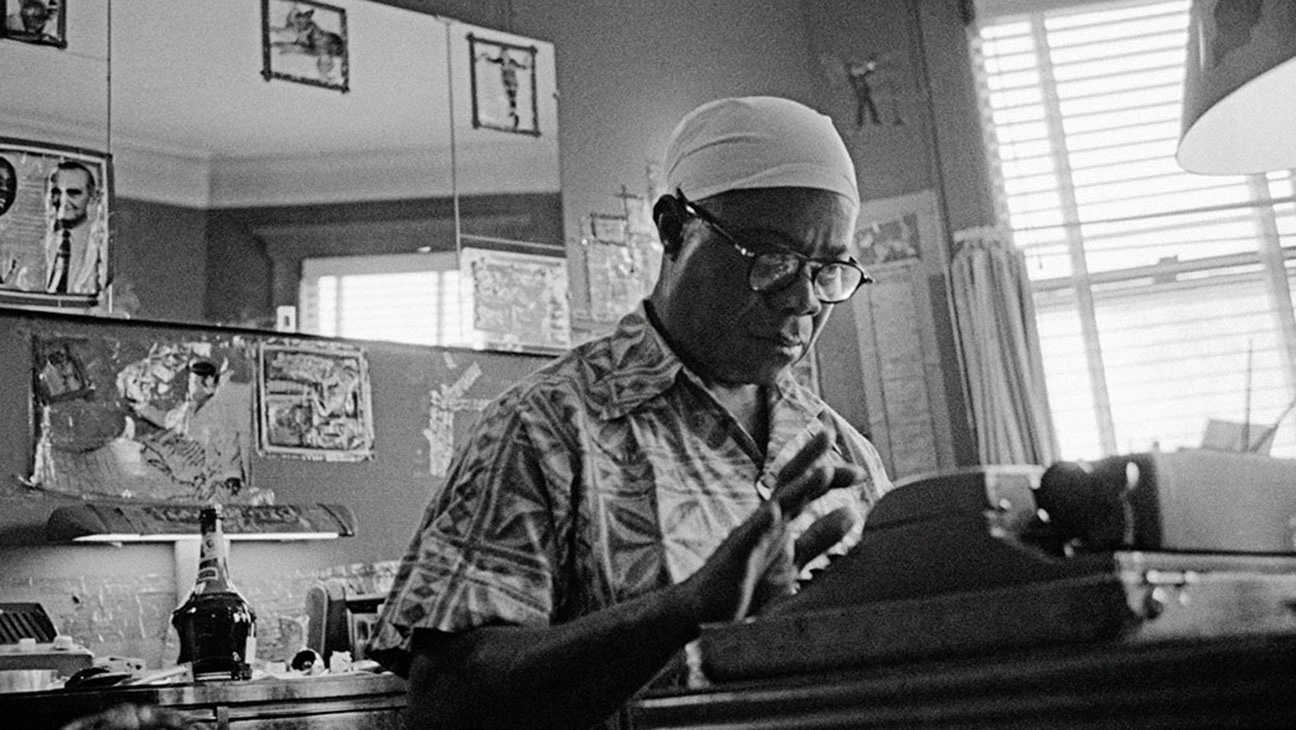
“Louis Armstrong’s Black & Blues” (R)
Sacha Jenkins, director of “Louis Armstrong’s Black & Blues,” screened his film in Toronto to an applauding audience upon completion of its one hour and 44 minutes run-time. What I appreciated is the raw footage that is shown to weave the tale, as well as the pulse of the times in terms of racial divide; you won’t see talking heads here as all have been visually documented. The burning question is whether Armstrong was an Uncle Tom, a person who ‘sells out’ and pandered—providing gratification to others while ignoring his own interest. One main issue is that there can be no doubt that he was one of the greatest artists of the 20th century.
Not knowing much about Louis Armstrong, except my favorite song of his, “What a Wonderful World,” the documentary offers a pulse on the historical happening of the time and Louis Armstrong’s reaction to some of those. The film is visually entertaining and historical; told through Dick Cavett and Mike Douglas footage, along with narrators reading letters and notes off-camera. Examples are shown of Armstrong playing to an all fancy white audiences and not being allowed to go near their tables at any time, yep, even after the shows. Worse yet, performing and touring in the deep south presented a considerable problem for black musicians—accommodations for overnight stays were limited.
Gratification comes in hearing Armstrong own voice and words of how much he fully understood the system and hated it. He tells a story about how after Pearl Harbor, a white sailor came up to him at a USO show where he was performing and wanted to shake his hand. “’ You know, I don’t like Negroes,’” the sailor told Armstrong. “Right to my f…ing face that motherf…r told me. I said, ‘Well, I admire your god…n sincerity.’ And he says, ‘I don’t like Negroes, but you are the one I’m crazy about.’ Two-thirds of white people don’t like blacks, but there’s always one they’re crazy about. Ain’t that a bi…h?” Wow, disgusting for sure.
Near the end of the film, Armstrong changes his performance policy and would not book a gig where he and his band could not stay overnight. More to follow on his multiple marriages, children, and awards. One of the aspects of his persona I’ve always loved is his big wide smile; fortunately you’ll discover he had the last smile and laugh on all.
The documentary film drops on Apple TV on October 28, 2022.
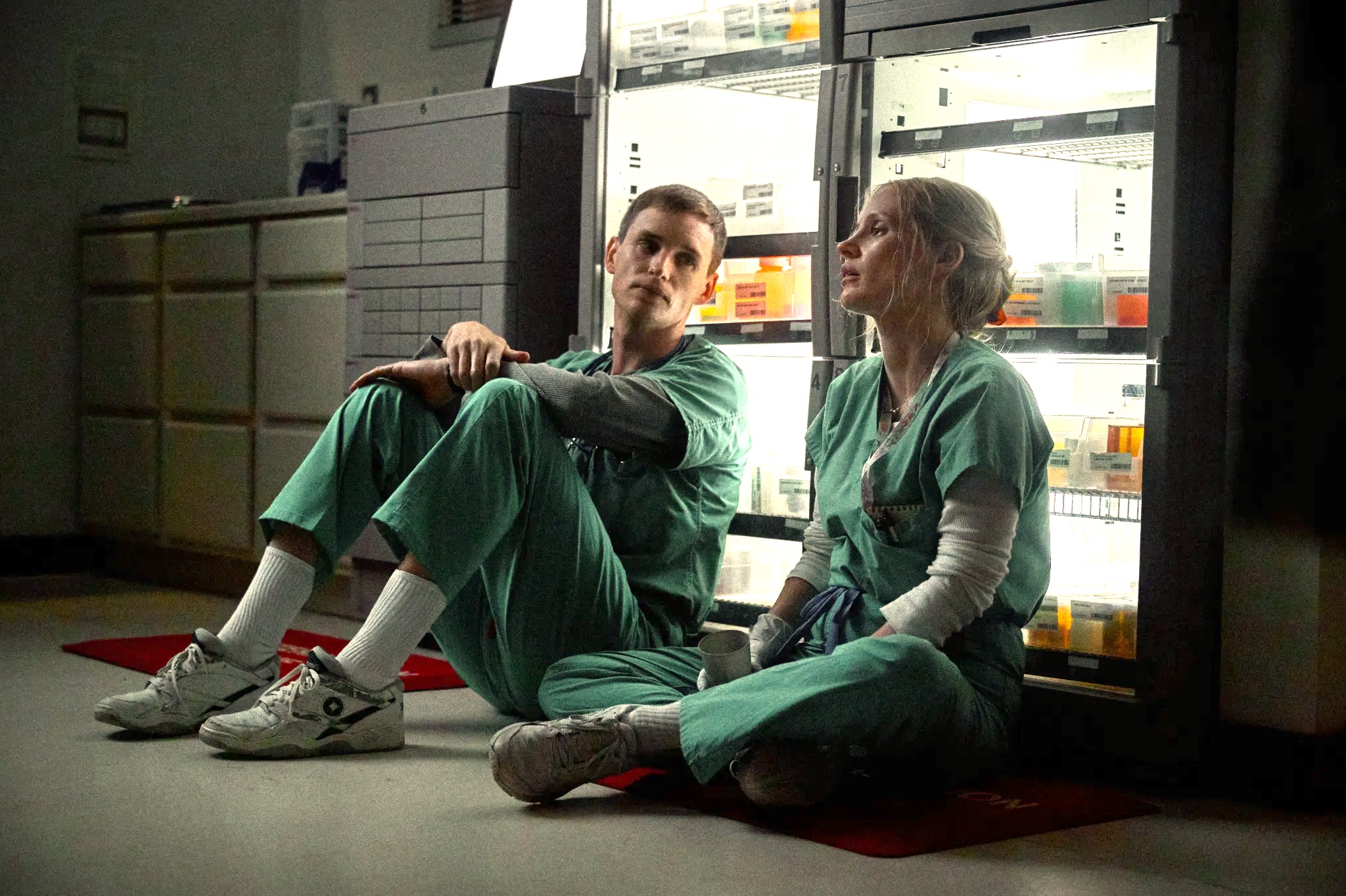
“The Good Nurse” (R)
Academy award winners Jessica Chastain and Eddie Redmayne star in a true-crime thriller investigating hospitals and the health-care system in America. Tobias Lindholm has his American directorial debut. Based on the book “The Good Nurse: A True Story of Medicine, Madness, and Murder” by Charles Graeber, with a screenplay penned by Krysty Wilson-Carins. Chastain plays a single mom who is forced to consider that her co-worker and friend Redmayne may be involved with the killing of patients.
Winning an Academy Award last year for her Best Actress performance in “The Eyes of Tammy Faye,” an evangelist singer— Jessica Chastain’s follow-up film is a very different genre; at times, it borders on horror. Eddie Redmayne’s, winning the Best Actor 2015 award, portrayed Stephen Hawking in a physically challenging role—also a very different genre. Both are incredible in their roles in “The Good Nurse.”
Single mom Amy Chastain discovers she has cancer and needs to remain in her job for a few more months to be insured. Her new colleague, Charles, is sweet, enduring, and extremely helpful to Amy in terms of her children and home life. When Charlie discovers her secret, he vows to make sure he covers for her and helps anyway he can, as her work is physically challenging.
Amy is stunned when some of her patients begin dying under mysterious circumstances. Local homicide detectives Danny Baldwin (Nnamdi Asomugha) and Tim Braun (Noah Emmerich) notice a suspicious pattern in these deaths. They are obstructed by the hospital’s bureaucracy, which starts at the top and trickles down. Rumors about Charles’s past at other hospitals begin to open Amy’s eyes to her friend, that could be a killer.
She decides to collaborate with investigators as the situation becomes a race against time. The harrowing film becomes terrifying as the killer relocates to another hospital. Both actors are astonishing in their roles, and I can recommend viewing the film. The director’s sharp pacing and quiet moments create a tightrope of tension.
The film drops on Netflix on October 26, 2022.
Sarah Knight Adamson© September 14, 2022
